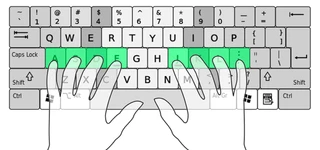Nowadays, most accountants and corporates have shifted to accounting automation. With this transition, managing the bookkeeping, maintaining financial records, and tracking profit and loss data has become easier.
So, what exactly is accounting automation? What are its benefits? And how can it profit your business? Let’s learn everything about automation in finance and accounting procedures below.
What is Accounting Automation?

Accounting automation is the procedure of automating key financial and accounting operations with the help of software. It includes accounts reconciliation, changing financial data, and creating accounting statements.
With the advancement of AI and robotic process automation (RPA) in recent years, the capability of accounting software has expanded. With these technologies, businesses can record and track data, automate repetitive tasks like data entry, streamline auditing, budgeting, invoice processing, etc. With accounting automation, businesses can save their time and focus more on budgeting and investment planning and improve their operational efficiency.
How Automation of Accounting Process Can Help Businesses?

Suggested Read: Future of Accounting Software to Automate Business Finance
By automating the entire accounting procedure, businesses can be benefitted in multiple ways such as-
- Avoid a Cash Flow Crisis: Manually keeping a record of all the cashflow can be difficult. Accounting automation eliminates this possibility by accurately recording each cash transaction and providing their financial status. Moreover, it also provides visibility into how much cash inflow has occurred in the current financial year.
- Saves Time: Accounting solutions simplify the task of entering debit and credit card details, and client information for accountants. Further, these solutions automatically process the data entered and generate accurate data reports. Additionally, these tools create balance sheets, profit and loss statements, etc., that saves valuable time.
- Offers Enhanced Security: Automated accounting system uses various security protocols like encryption to keep all the data and records safe against cyberattacks. Moreover, it lets you manage permissions for those who can access the data to prevent unauthorized usage.
- Provides Detailed Data Analysis: With automated accounting system, data compilation and analysis become easier. Businesses can get financial data and reports quickly. This data can be used to find discrepancy, omission errors, duplicate entries, miscalculations.
- Meet Regulatory Compliance: In manual accounting, compliance is completely based on the accountant’s knowledge and expertise. However, the accounting software ensures that you stay compliant by recording and maintaining financial statements as per their regulatory requirements.
What are the Benefits of Automated Accounting System?

Automated accounting tools help in maintaining data accuracy, ensure faster data retrieval, and reduce costs. The automation further assists with tax record preparation, and data access from the cloud. It further helps to generate error-free financial statements and stay compliant. Let’s look at each of them in detail –
- Data accuracy: There can be miscalculations or inaccurate details when accounting statements are created manually. Hence automated accounting ensures the data has been fed accurately through automated financial bookkeeping. This will help in creating accurate financial statements.
- Quicker Data Retrieval: Financial data can be easily lost when the data is compiled manually. However, when you use accounting automation software, all your financial data is stored in the cloud server safely. Therefore, you can quickly back up and retrieve data in case of any loss.
- Reduces Cost: With accounting automation, businesses can automate everyday tasks such as bookkeeping, calculating taxes, creating financial statements, reconciling bank statements, etc. This helps businesses to reduce costs on stationery and staff as all the tasks can be completed with the solution.
- Prepare Records for Tax Deductions: Maintaining the record of all expenses and receipts for tax reductions is hectic. With the automation of accounting processes, transactions will be automatically recorded to be used at the time of returns filing. This will provide information about all the deductibles at a single place.
- Cloud Accessibility: Most accounting automation tools offer cloud accessibility to store all the accounting data and documents. This makes it easier to retrieve and locate any file by its name, date, or data type, without searching it manually. Moreover, you can also share encrypted files.
Suggested Read: How Will Accounting Software Help Increase Productivity
What are the Risks of Accounting Automation?
Accounting automation has amazing benefits. However, some risks are associated with it, such as complicated interface, slow training period, complex data transfer, etc. Businesses have also witnessed technical glitches and security issues by automating their accounting procedures.
- Complicated Interface: A few accounting software solutions have a complex interface that might be difficult to learn and navigate. Hence, business accountants might take time to get familiar with the solution initially.
- Slow Training Period: The transition from manual to automated accounting requires training for employees to use the accounting system. Additionally, the training period would differ from person to person based on their capability, thus making the software implementation a bit slow.
- Technical Glitches: IT support is frequently required to fix issues that might hamper the work. Moreover, the software server might also slow down, further delaying the work and impacting database accessibility.
- Complex Data Transfer and Integration: It might be possible that the solution misses out on any important data during the transfer. Thus, creating discrepancies in the migrated data. Moreover, not all accounting software can be integrated with the existing software including ERP, CRM, etc., for data sharing.
- Security Issues: Although, accounting automation uses various data security protocols such as encryption. However, the data remains prone to breach and malware attacks, thereby posing a threat to information security.
Suggested Read: How Automated Invoice Processing Works for Quick Payments?
Wrapping Up



The shift to accounting automation is inevitable and every business needs to shift towards a more competitive option. This transition from manual to accounting automation will help businesses to improve their operational efficiency, maintain data accuracy and stay compliant. It frees accountants from the burden of performing mundane tasks so that they can focus more on financial planning and strategy.
Furthermore, the automation of accounting procedures will provide in-depth financial reports that can be used to analyze the growth status of an organization quickly.
Related Categories: GST Software | Expense Management Software | Income Tax Software | Debt Collection Software | Quoting Software | Pricing Software
FAQs
- What do you mean by automation of accounting process?
The automation of accounting procedure simply means the management of all the accounting and financial tasks via accounting software. With it, you can automatically record account payable and receivable, calculate tax, create financial statements, etc. Furthermore, it also provides real-time analysis to check your company’s financial health.
- Will automation take over accounting?
No, automation will never take over accounting. Instead, it can only eliminate redundancies and errors. Accountants can use it for checking their cash inflow, automating bookkeeping, calculating profits, generating financial reports, etc.
- How does automation affect accounting?
The automation of accounting procedures has helped businesses to manage their key accounting and financial tasks efficiently. In addition to that, it helps businesses to keep their accounting data safe from data breaches. It also simplifies ledger management, cashflow management, invoice management, etc.
- Are accountants safe from automation?
Yes, accountants are safe from the automation as it will never replace them. However, it will only simply their tasks by streamlining key accounting functions. Data and reports generated by the software can be used by accountants to create financial strategy, find cashflow bottlenecks, and more.
- Can audit be automated?
Yes, financial auditing can be easily automated with an accounting system. You can use it to streamline your auditing processes and ensure that your company is complying with the industry regulations and internal policies.
Varsha is an experienced content writer at Techjockey. She has been writing since 2021 and has covered several industries in her writing like fashion, technology, automobile, interior design, etc. Over the span of 1 year, she has written 100+ blogs focusing on security, finance, accounts, inventory, human resources,... Read more








